Air Passenger Rights Comparison: USA vs EU Travel Protections
Our air passenger rights comparison will highlight the similarities and differences in travel protections in the USA and Europe. What’s the same? And what’s different? We’ll look at the protections airline passengers have in the U.S. and in Europe and then do an air passenger rights comparison on the strengths of. This is a part of the reason people are so upset with the American Airlines changes.
Updated 9/30/21
Air Passenger Rights Comparison – Background Info
The Montreal Convention of 1999 (which went into effect 2003) is a treaty among the vast majority of countries and their airlines. It governs rights and payments for people injured or killed during airline accidents. It also covers baggage and equipment for disabled passengers that is lost or damaged during these crashes.
Having an airline pay for your body to be sent home after death is helpful, but there are obvious shortcomings here. The treaty doesn’t address any passenger rights, such as what happens when I lose money due to airline cancellations or even crashes where I wasn’t killed, just arrived somewhere late. In response to these shortcomings, the European Union and the United States have taken different approaches to addressing them. What follows is an air passenger rights comparison between the two.

United States
Within the U.S., airline operations are covered by the Department of Transportation (DOT). They detail passenger rights here. The DOT states that passengers have a right to compensation in these situations:
- Delayed and canceled flights
- Overbooking
- Baggage damage, delays, and loss
Let’s look at each of these in turn.
Delayed And Canceled Flights
Numerous flights are delayed or canceled every year. Some require airlines to compensate you; others don’t. It comes down to whether the airline can control the delay/cancelation or not. If the situation is beyond the airline’s control, they are not required to compensate you.
Things like weather, air traffic delays and directions coming from the control tower, and mechanical issues are unpredictable. When these are beyond the airline’s control, the airline doesn’t have to compensate you. You can ask the airline to put you on a flight with another airline, if there’s one going sooner. However, they’re not required to compensate you in this way.
In fact, there is no federal rule that applies to all airlines in terms of delays. Each airline can set its own policies, which means you should read their terms. It also causes more headaches, due to lack of uniformity. Ask the airline for a copy of their policy during a delay or cancelation, so you know what your rights are. Ask what they will provide, but being prepared with knowledge will help.
Article 19 of the Montreal Convention also will help you. If you lose money or have expenses incurred by the delay or cancelation, file a claim with the airline citing your extra expenses. This could be things like a hotel when stuck somewhere overnight or meals because of lengthy delays.
If your flight is canceled, the airline should rebook you on the next flight with available seats. They should do this without charging you for it. If their “next available flight” is after a flight on another airline, ask the airline to book you onto this other airline, understanding that it’s not mandatory.
Also understanding that American Airlines changed their terms, saying they aren’t responsible at all for delays or cancellations. Read more on that here.
Tarmac Delays
Tarmac delays also do not entitle you to compensation. Tarmac delays cover delays before take off and after landing where the airplane must wait on the tarmac / near the runway. DOT policy prohibits U.S. airlines from waiting on the tarmac for more than 3 hours, unless one of the following situations occurs:
- the pilot determines that a safety or security risk prohibits the aircraft from going to the gate / letting passengers off
- air traffic control determines that allowing the plane to go to the gate or another area to let passengers off would cause significant interruptions to the airport’s operations
Surprisingly, tarmac delay rules under the DOT do not apply to international flights departing from the U.S. In these situations, the airline’s policies are in effect. However, airlines must provide food and water no later than 2 hours into a tarmac delay on flights departing U.S. airports. This applies to domestic and international departures. The airline must also make the lavatories available to passengers, and medical attention must be available.
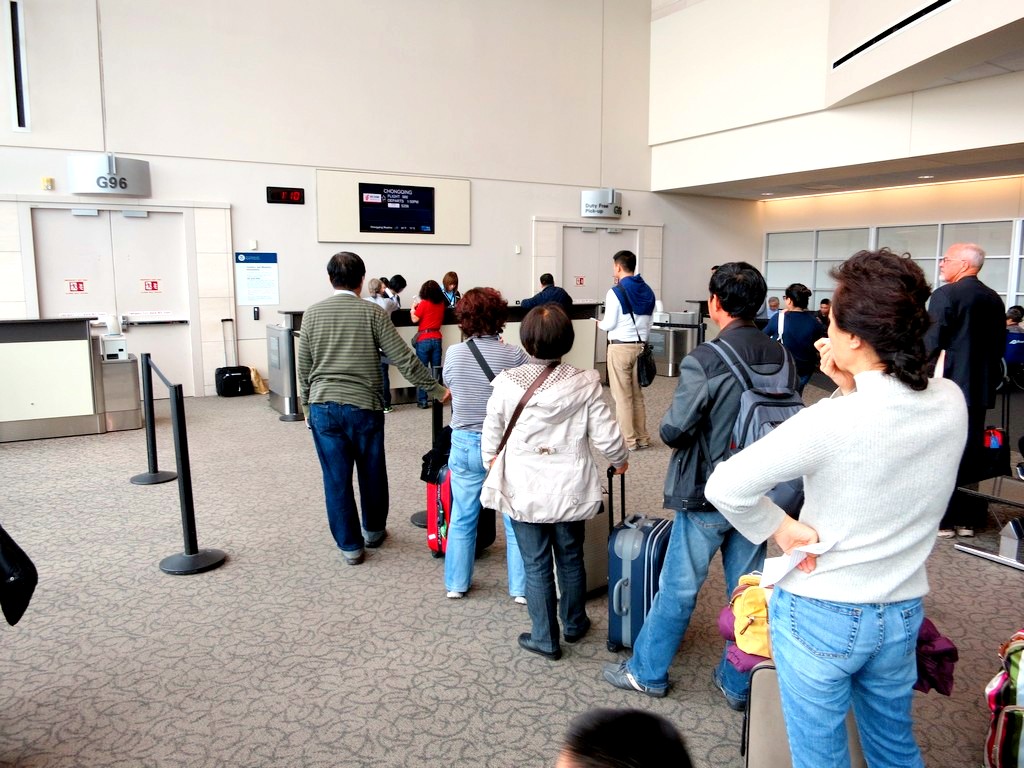
Overbooking
“Overbooking” is something airlines do to try to fill every seat on the flight. They calculate the amount of passengers they think won’t show up and sell that many extra tickets. If everyone does show up, though, the flight is overbooked. There aren’t enough seats. In this situation, the DOT requires airlines to compensate passengers who are “bumped” off the flight. This can be voluntary (they ask for anyone willing to give up their seat in exchange for compensation) and involuntary (the airline tells you that you can’t get on the flight, and they must compensate you).
Voluntary Bumping
The DOT requires airlines to ask for passengers who are willing to give up their seats. The airline will offer you something to give up your seat, usually in the form of a voucher with the airline or even cash. Then, the airline will book you on a later flight and provide instructions on claiming your compensation.
If you are thinking about volunteering, be sure you know what you’re getting into. When is the next flight (the one they’ll move you to)? What will the airline provide you in the meantime while you wait? Meals, a hotel room, transportation, passes to the airline lounge, etc.? Be sure that any costs you might incur will be covered.
There’s no set rule on what the airlines must offer you, so don’t let the airline low-ball you. Airlines will negotiate, and the compensation they offer will go up the closer it is to take-off time. The offer might increase from $300 to $500 just by waiting or negotiating. Be sure you understand the restrictions in your compensation, also (when does the voucher expire? etc.).
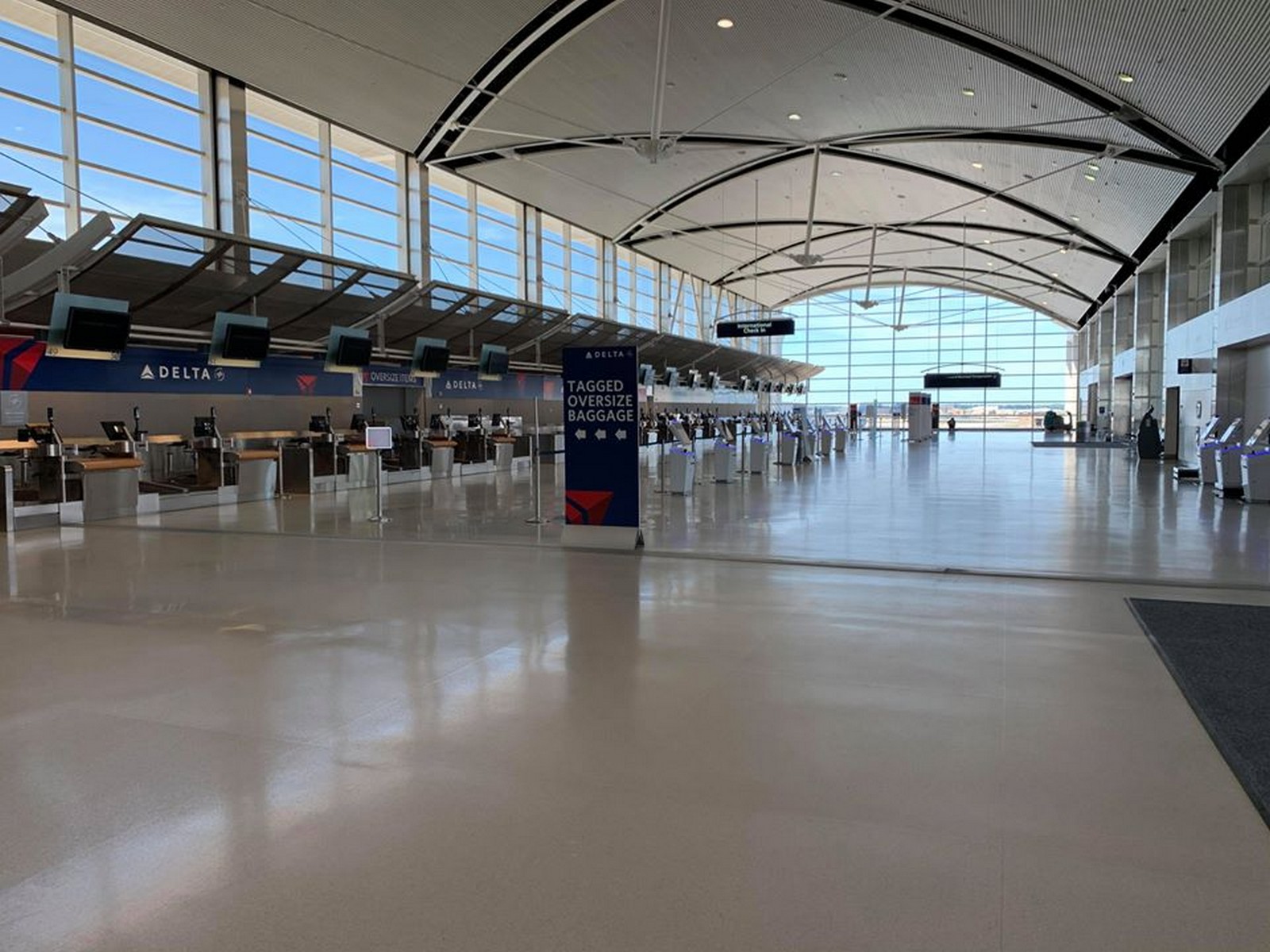
Involuntary Bumping
If you are bumped against your will, the DOT has specific rules that apply. You must be compensated in cash or check–not a voucher. How much the airline must give you depends on the cost of your ticket and the length of the delay:
- If you arrive at your destination within 1 hour of your original scheduled arrival time, you will not be compensated.
- If you arrive at your destination between 1-2 hours after your original arrival time, you will be compensated at 200% of your one-way ticket price, with a $675 maximum.
- If you arrive at your domestic destination 2+ hours later than your original arrival time, international destination 4+ hours later than your original arrival time, or if the airline does not make substitute travel arrangements for you, you will be compensated for 400% of your one-way ticket price, with a $1,350 maximum.
- If your trip is an award flight or was bought through an agency, you will be compensated for the price of your same fare class for your flight.
- If you deny the airline’s rebooking flight and choose to book your own flight, you will be compensated for the price of the ticket you purchased.
- If you paid additional fees for extras (seats, checked bags, Wi-Fi, priority boarding, etc.) and you do not receive those services on your rebooked flight OR had to pay for those services again, you will be compensated for the price of those optional services.
Limitations and Exceptions
There are notable limitations and exceptions to the compensation rules above.
- If you do not have a confirmed reservation, you will not be compensated.
- If you miss your check-in deadline, you will likely not be compensated.
- If you booked a chartered flight and are bumped, you will not be compensated.
- If you booked a flight with fewer than 30 seats, you will not be compensated.
- If the flight has 30-60 seats and bumps you due to safety issues with aircraft weight or balance constraints, you will not be compensated.
- If the airline must substitute a smaller plane than the one in your original booking, you will not be compensated.
- If you booked an international flight inbound to the U.S., you are not required to be compensated.
Lastly, if being bumped costs you more money than the airline will pay you at the airport, you can contact their customer service department to negotiate. If the airline still won’t cover your incurred costs, you can always take them to court.
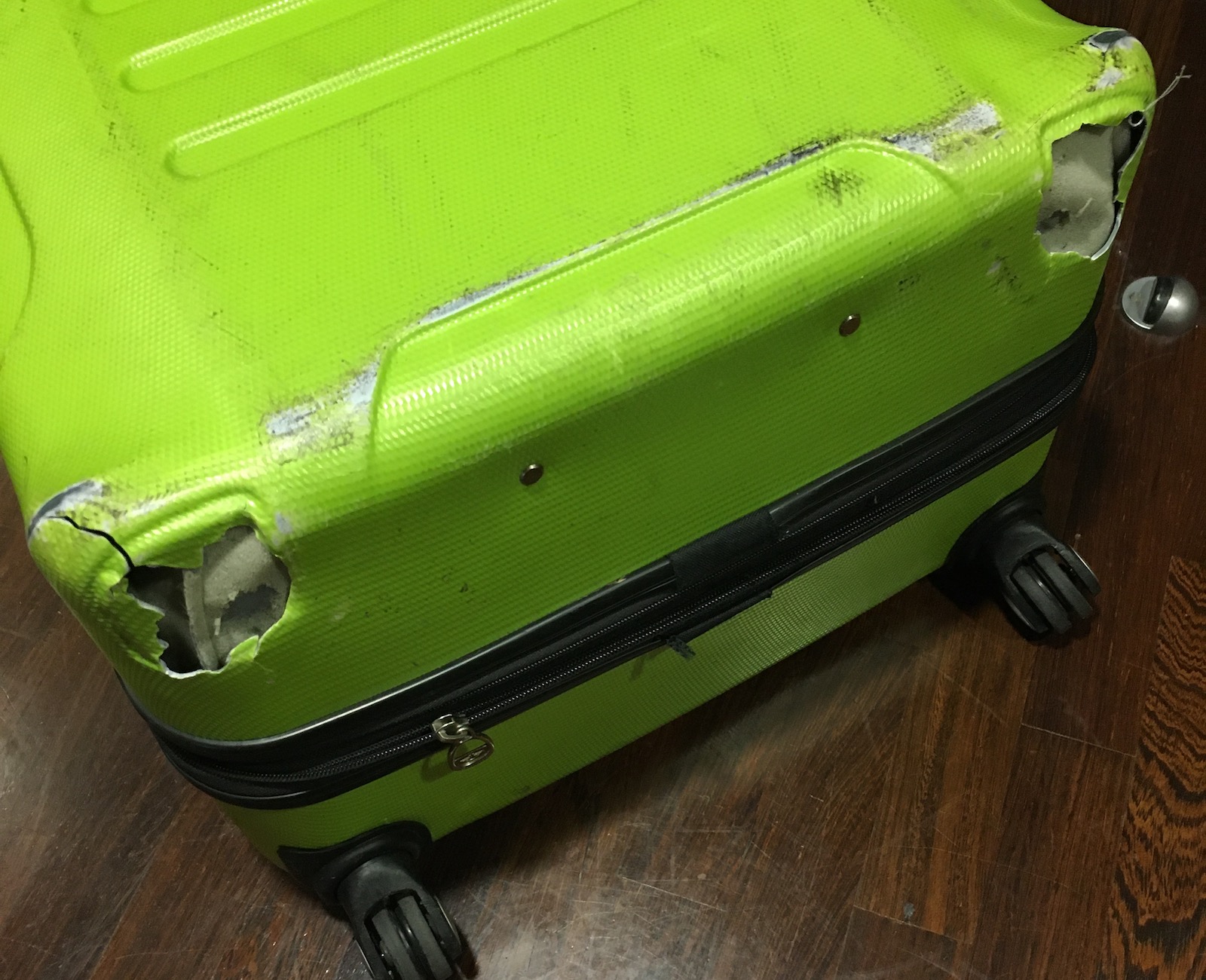
Baggage Damage, Delays, And Loss
There are policies for damage, delays, and losses related to baggage on flights in the U.S. Each type has different rules, so let’s break them down.
Damaged Luggage
You should receive compensation in these situations:
- If your luggage is smashed or torn, the airline should pay to repair the luggage.
- If it can’t be repaired, the airline will pay you depreciated value of your luggage (AKA “what it’s worth after all this time”).
- If items inside your baggage are damaged by the airline, the airline may be liable for those damages.
Delayed Luggage
If your luggage doesn’t arrive with your flight, file a claim before leaving the airport. You should receive compensation in the following types of delays:
- If your luggage is delayed and you incur expenses, you will have to negotiate with the airline to cover “reasonable expenses”.
- If the airline does not provide you a cash advance, it may still reimburse you later for necessary items.
- If sporting equipment is delayed, the airline may pay for the rental of replacement equipment.
- If clothing or other articles are delayed, the airline might only a portion of the cost for purchasing new items while you wait.
- In an emergency, most airlines have policies on how airport employees can compensate you for emergency purchases.
- If food or perishable goods are ruined as a result of your luggage being delayed, the airline will not reimburse you.
Bear in mind that that there are limits to payouts if the airline is found liable for damages. The current limit is $3,500 per passenger on domestic flights and $1,675 for international round-trip flights originating in the U.S.
Lost Luggage
If your luggage is lost, you should submit a claim before leaving the airport. If your trip involved 2 different airlines, usually the last one you were on is responsible for your lost bags.
While filling out your claim, remember that the airline isn’t bound to pay for your full claim.
- First, the airline will look through your claim and estimate the value of what’s lost. It will determine the depreciated value of these items, not their original price or the replacement costs.
- Next, the airline will take 1-3 months to compensate you for your lost luggage, on average.
- Lastly, the airline will pay you a settlement in the form of a cash payment or a free airline ticket in an amount that may be greater than the cash payment.

European Union
The European Union has a specific law regarding air passenger rights in their air space. E.U. Legislation 261/2004 sets out both rules and a compensation structure for passengers during delays, cancelations, or being denied boarding. We previously covered EU261 here.
The E.U. passenger rights apply on flights within, to, or from the E.U. if:
- Your flight is within the E.U., regardless of airline
- Your flight arrives in the E.U. from outside the E.U. and is operated by an E.U. airline
- Your flight departs from the E.U. to a non-E.U. country, regardless of airline
While this is an E.U.-based law, it also covers airspace related to countries that aren’t part of the E.U.. This includes Iceland, Norway, and Switzerland. EU261 flight compensation rules also apply to numerous overseas territories of European countries:
- French Guiana
- Martinique
- Mayotte
- Guadeloupe
- La Reunion
- Saint-Martin
- Madeira
- Azores, and
- Canary Islands
Denied Boarding
If you arrive on time and have everything needed to travel (ex: documents), but you’re involuntarily bumped, you are entitled to:
- Compensation
- A choice between rerouting, reimbursement, or rebooking
- Assistance
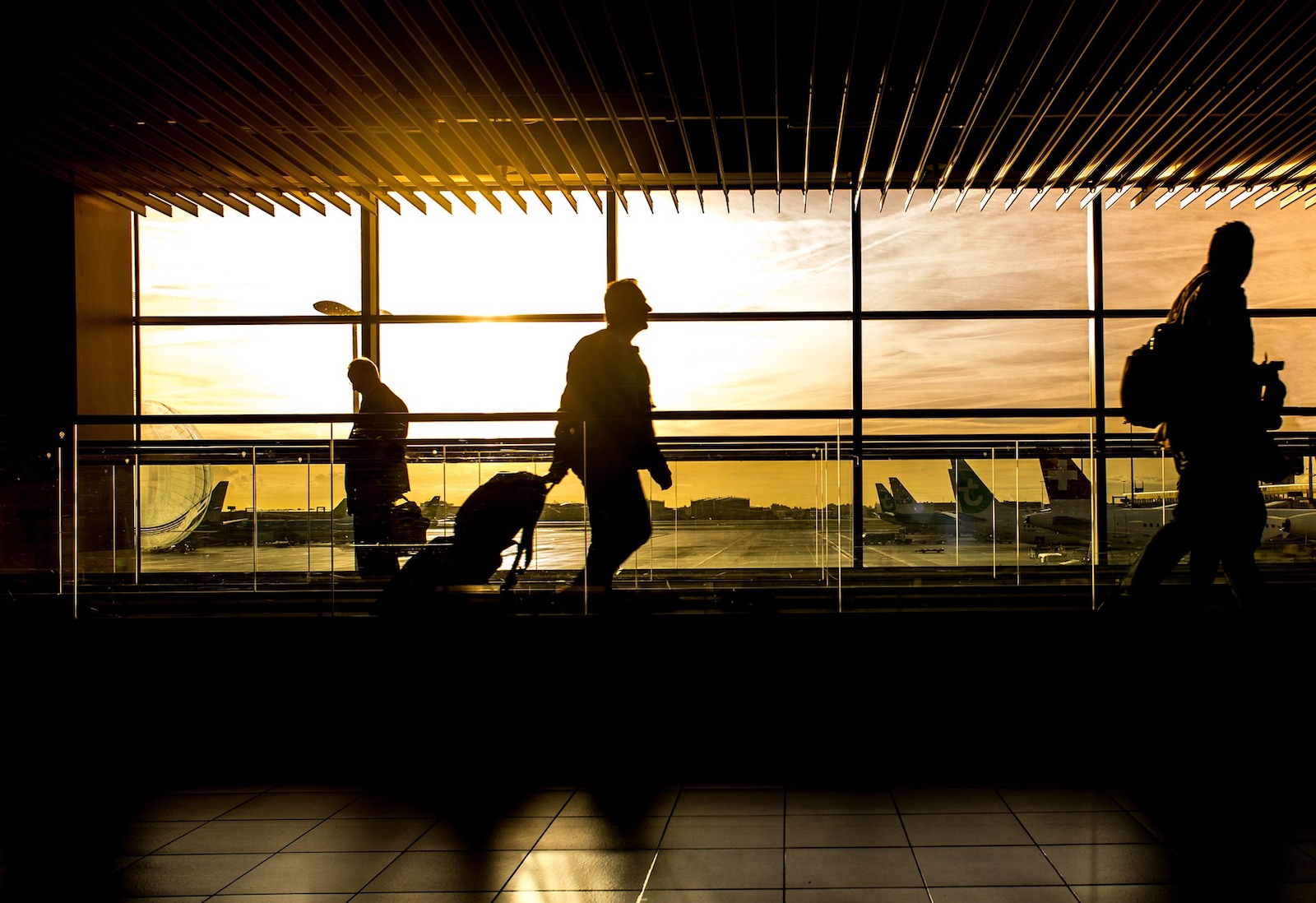
Compensation
Compensation for denied boarding is as follows:
- For flights less than 1,500 km: €250
- For flights more than 1,500 km within the EU: €400
- For flights between 1,500-3,000 km: €400
- For flights over 3,000 km: €600
Note that your compensation might be reduced by 50% if you arrive only 2-4 hours later than planned.
If you are connecting to a different airline during a layover, airlines are not required to provide compensation if the first flight is delayed and causes you to miss the connection. However, if the first flight is delayed more than 3 hours, you may be entitled to compensation from the airline causing the delay.
Choices
In addition to compensation, the airline must offer you a choice of the following:
- Reimbursement of your ticket and a return flight to your departure airport, if you have a connecting flight
- Rerouting to your final destination
- Rerouting at a later date under comparable transportation conditions
Once you choose, you can’t change it, so be sure to understand your choices. However, you may still be entitled to compensation:
- If the airline does not provide rerouting or comparable return transportation to your departure airport, the airline must reimburse the cost of your flight.
- If the airline reimburses your flight cost and doesn’t offer a choice between reimbursement or rerouting, you are entitled to the price difference of the new flight cost.
- If you booked separate outbound and inbound flights with different airlines, and then the outbound flight is canceled, you’ll only receive reimbursement for the cost of the canceled flight.
If your reservation has separate airlines as part of a single reservation, and then the outbound flight is canceled, you are entitled to compensation. You’re also entitled to one of the following options:
- Reimbursement of your entire ticket
- Rerouting on another flight for the outbound flight
Assistance
If you’re denied boarding, you’re also entitled to assistance, which includes:
- Refreshments
- Food
- Accommodation if your flight requires an overnight stay
- Transportation to/from your accommodation
- 2 phone calls, text messages, or emails
If the airline does not provide assistance and you must pay for these expenses, the airline must reimburse you, as long as the expenses were necessary.
Canceled Flights
When your flight is canceled, you are entitled to the same 3 rights as if you were denied boarding:
- Compensation
- A choice between rerouting, reimbursement, or rebooking
- Assistance
Note that the airline must compensate you if they notified you of a cancellation less than 14 days before your scheduled departure date. However, if the reason for the cancellation was beyond the airline’s control, they don’t have to compensate you.
You also are not entitled to compensation if:
- you are notified at least 2 weeks prior to departure
- the airline notifies you between 1 and 2 weeks prior to departure AND re-routes you so that you:
- depart no more than 2 hours earlier than scheduled, and
- arrive no more than 4 hours later than scheduled
- the airline notifies you less than 1 week prior to departure then re-routes you so that you:
- depart no more than 1 hour earlier than scheduled, and
- arrive no more than 2 hours later than scheduled
- the cancellation was caused by extraordinary circumstances that could not have been avoided by any reasonable measure.
Flight Delays
When a flight is delayed, passengers are entitled to communication about the event. They’re also entitled to refreshments served by the airline. However, this does not apply to all flight delays. It applies after these amounts of time:
- 2 hours, if the flight is less than 1500 km / 932 mi in distance
- 3 hours, if the flight is within the EU and more than 1500 km / 932 mi in distance OR a flight more than 1500 km / 932 mi but less than 3500 km / 2175 mi in distance
- 4 hours, if the flight is more than 3500 km / 2175 mi in distance
In addition, if a flight will depart on the day after the original departure time, passengers are entitled to accommodation.
If a flight is delayed by 5 hours, passengers have the right to abandon their journey and receive a refund for all unused tickets, a refund on tickets used already if the flight no longer serves any purpose in relation to their original travel plan (ex: you now can’t make it to a meeting), and, if relevant, a flight back to their original point of departure at the earliest opportunity.
Lost, Damaged, or Delayed Luggage
If your checked bags are lost, damaged, or delayed, you are entitled up to €1,200 in compensation from the airline. However, you aren’t entitled to compensation if the damage was caused by a product defect. Additionally, the airline is responsible if it damages your carry-on bag.
You should filed your damage claim within 7 days. File a delayed / lost bag claim within 21 days. Claims are filed directly with the airline.
Air Passenger Rights Comparison
After laying out the policies and regulations, we can compare them. Knowing how they’re similar and different helps us know our rights when traveling. It also can help us receive due compensation or file claims correctly, in the event of delays, cancellations, or damages.
U.S. Strengths
Because airlines in the U.S. are much more likely to oversell flights, hoping to fill all seats, overbooking and then bumping passengers are more common. Thus, the DOT spells out your right to compensation, and your chances of encountering this are more likely. The maximum compensation is $1,350 per passenger.
E.U. Strengths
With one, uniform policy, that is a strength from the outset. Additionally, clear definition on compensation for each type of situation helps passengers assert their rights and receive what they’re entitled to in those situations. Other strengths of EU261 are that the airline must inform you of your rights, and they must return you home during a “trip in vain”–when delays or cancellations make your trip pointless, such as missing the meeting or wedding you’re going to. Lastly, EU261 makes it costly for airlines to create “rolling delays”, where they tell you a flight is delayed 1 hour and then later add an hour, add an hour, add an hour… This is because they are required to provide clear communication, at risk of financial penalties for failure to give you clear info.
Similarities
The U.S. DOT regulations and EU261 regulations both cover many of the same situations. They talk about financial losses due to damages or time losses creating financial losses. Both require airlines to still get you where you’re going and pay you back for your financial losses.
Final Thoughts
This air passenger rights comparison took a deep look at rights that airline passengers have in the U.S. and in the EU. After looking at what they do and don’t cover and the rights to compensation passengers have, we talked about the strengths of the different systems and also highlighted their similarities.
I hope that reading a detailed assessment and then consolidated air passenger rights comparison helps you know, understand, and assert your rights during difficulties when flying. Everyone experiences delays or cancelled flights. Even though we have these rights, the headaches from damaged bags and delayed luggage might make you want to just use a carry on whenever possible. Knowing your rights can help you stand up for yourself, but remember to be polite to customer service employees during these situations. Many people are going to yell at them, but you might “catch more flies with honey” if you’re nice when asking for compensation and assistance.
After reading this air passenger rights comparison, which system do you prefer? Is there one aspect you really prefer in one system that you wish the other would copy?


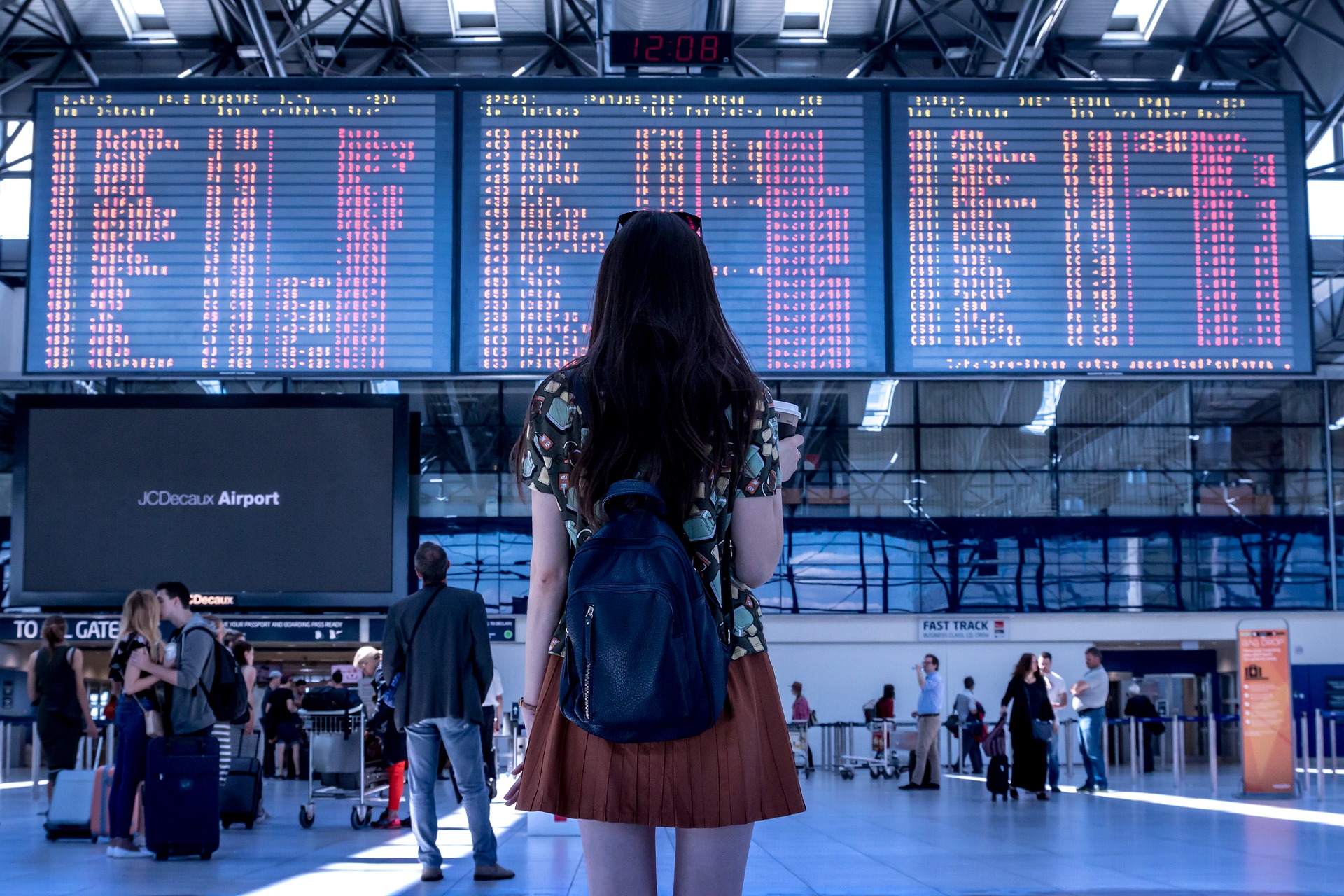
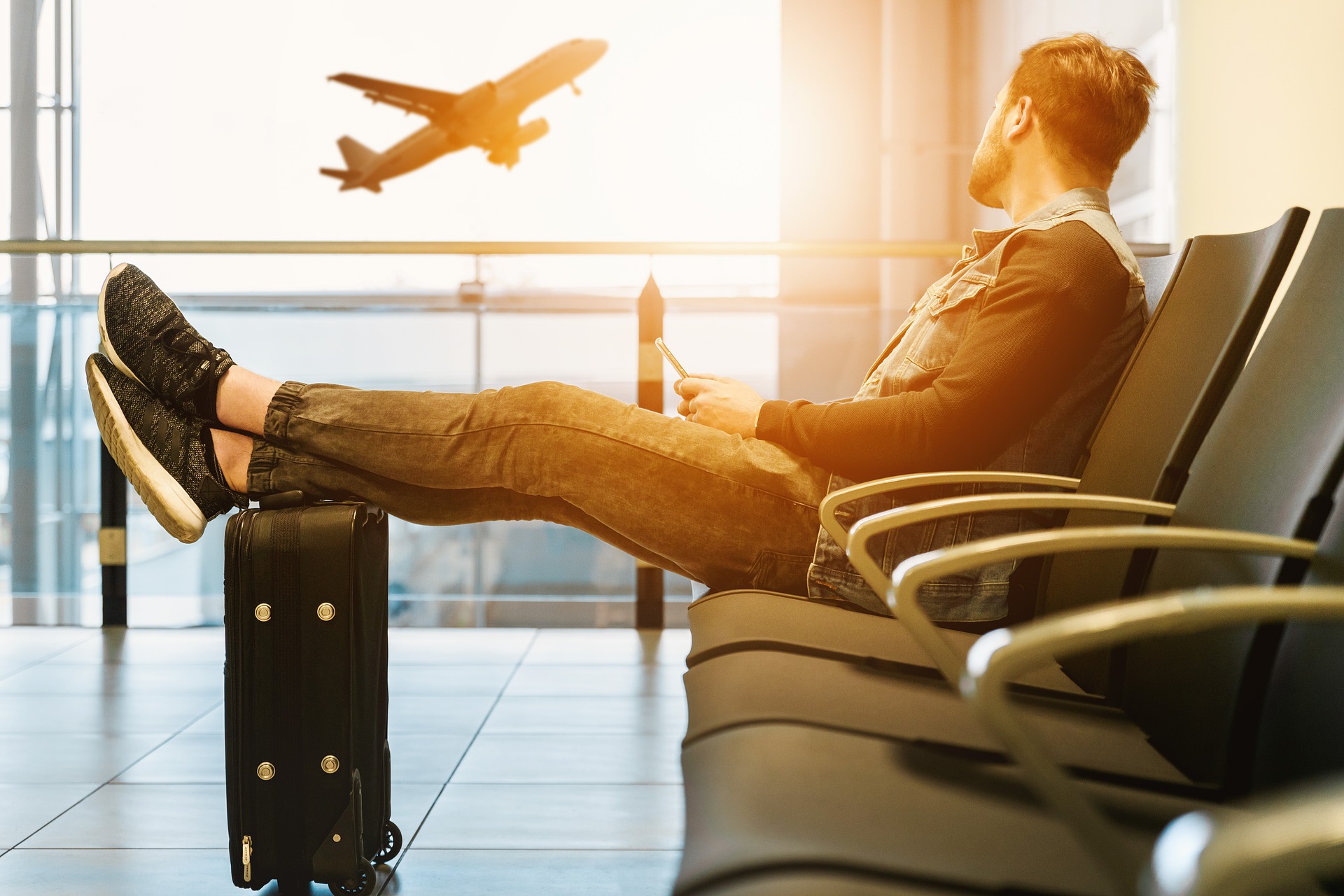


Fabulous article and I am bookmarking it!
Nice compilation, although pretty disheartening for people who live in the US. US airlines have a plethora of ways to get out of paying in pretty much any situation except overbooking. Any idea about compensation for involuntary downgrades? My wife and I were once downgraded from business to PE on a Cathay award ticket segment DPS-HKG. They paid us the fare difference in cash, so even though I was displeased with the downgrade I thought they acted properly.
Christian – asking specifically about downgrades on flights departing US airports on US carriers? I haven’t seen anything about forced downgrades (ex: biz is full, they move you to econ +). Like you said, the airlines have a lot of power, such as those “20 min delay…20 min more…20 min more” that AA often does and gets shredded for on YouTube.
No particular airlines or areas. You’ve obviously done a vast amount of research so I just thought you might have some insight, whether general or specific. More knowledge is better.
OK. If either of us hears something, come back to this article and comment, even if it’s the future. Sound good?
Sure. Thanks!
Maybe this article from one miles at a time will help you both understand the forced downgrade from business/first class to lower class.
https://onemileatatime.com/flight-downgrade-rights/